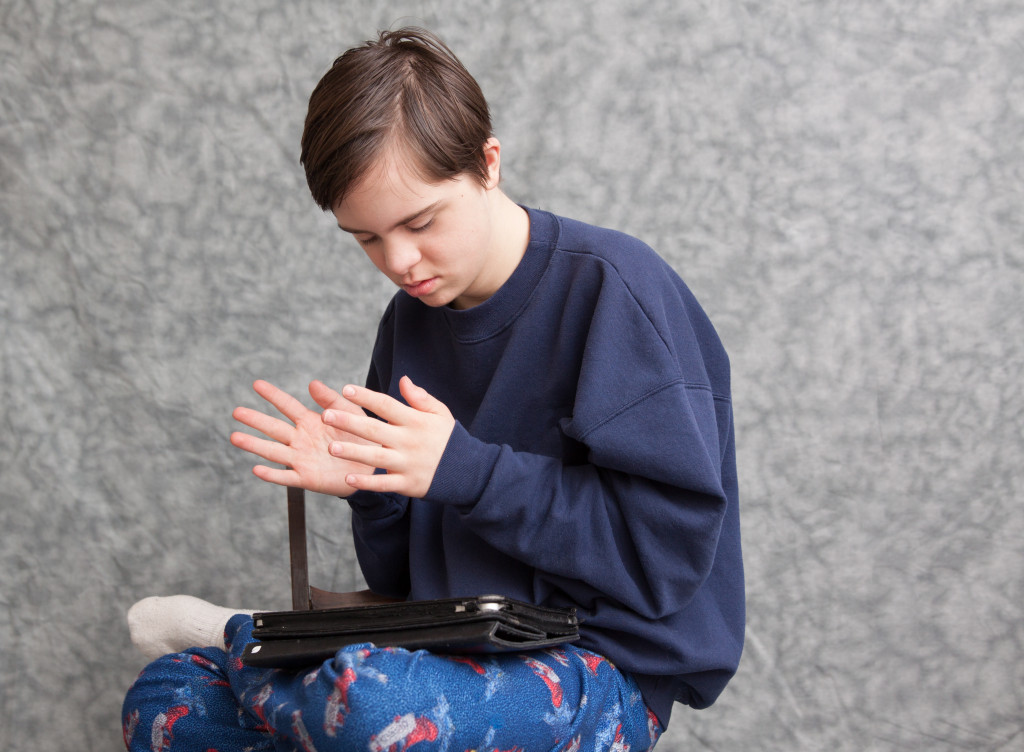Caring for an autistic individual can have its challenges, but it’s also one of the most rewarding things a person can experience in their life. People on the spectrum, and everyone else who is neurodiverse, deserve understanding and compassion from society, not judgment. They also deserve to be empowered to find their strengths and cultivate them.
Every caregiver knows that those on the spectrum are prone to an autistic meltdown, which is completely different from a tantrum. An autistic meltdown is not a behavioral issue; it’s a coping mechanism for when an autistic person feels overwhelmed and experiences sensory overload. Some signs of an autistic meltdown include screaming, kicking, crying, and in some cases, shutting down completely.
If we are to be effective caregivers to our autistic loved ones, we need to know the common triggers for their meltdowns and the best and most loving way to help calm them down and defuse the situation.
If you are a caregiver for an autistic person, here are some factors that can trigger a meltdown and how you can lovingly and effectively defuse the situation and help coax them back into their window of tolerance.
Changes in routine
While some neurotypical people thrive in spontaneity and unexpected changes, those on the spectrum tend to be more comfortable in sticking to a routine and always knowing what to expect on a day-to-day basis. For some in the spectrum, even something common as long-distance travel can cause dysregulation because it can cause a sense of disruption in their routine and structure.
When something doesn’t go the way they planned, or when there is an unexpected change within their routine—like conversations with new people or visiting a new place or city, it might be pressuring and triggering to them.
What will help your autistic loved one, student, or employee is to help manage their expectations. Tell them what they can expect during your daily routine together, and if changes are happening, let them know as early as you can. This will help ease the pressure on them.
Sensory overload

One of the hallmarks of autism or being on the spectrum is being extra sensitive to everything that’s happening in the world around you. When a person with autism experiences too much noise, bright lights, crowded spaces, or having too many things going on at one time, they might experience overstimulation, which can then lead to sensory overload. Imagine an experience like a live concert, a live football game, or a movie theater—these experiences can trigger an autistic meltdown for someone on the spectrum.
You should know about those on the spectrum that they don’t need fixing. Autism is their neurology, and it’s simply how their brain is wired. Their autism is a central part of how they take in the world and how they filter their experiences. We cannot cure neurology, and we don’t need to, but we can help them overcome their sensory and communication challenges through proper therapy and other tried-and-tested methods.
Consider filing for social security disability claims to help you find the best types of treatment for your loved one. For children with autism, treatment can include play therapy, integrated playgroups, joint attention symbolic play engagement and regulation, and others.
Unmet essential needs
It would be difficult for adults and children with autism to be at the top of their game when their basic needs like food, sleep, and water are not properly met. They are more prone to being distracted and distressed when they feel hungry, uncomfortable, and tired, which can then make them even more vulnerable to triggers.
As a caregiver, the best ways to combat meltdowns caused by this trigger are the following:
- At least eight hours of sleep every night
- Peace and quiet throughout the day
- Diet filled with nutritious food
- Make sure they drink enough water
The key is ensuring proper balance in every area of their physical being. Suppose you have ever heard of the concept of holistic health. In that case, the principle is the same: If your autistic loved one is feeling comfortable in their physical health, it might positively affect their mental, emotional, and spiritual well-being too.
Caring for a child or loved one with autism comes with challenges, but helping them grow into their strengths is always worth it. Exhaust every resource available to you, understand their condition and what they need the most, and you have the building blocks for reaching your goal of maximizing their ability to function by supporting their learning and development in every way you can.







